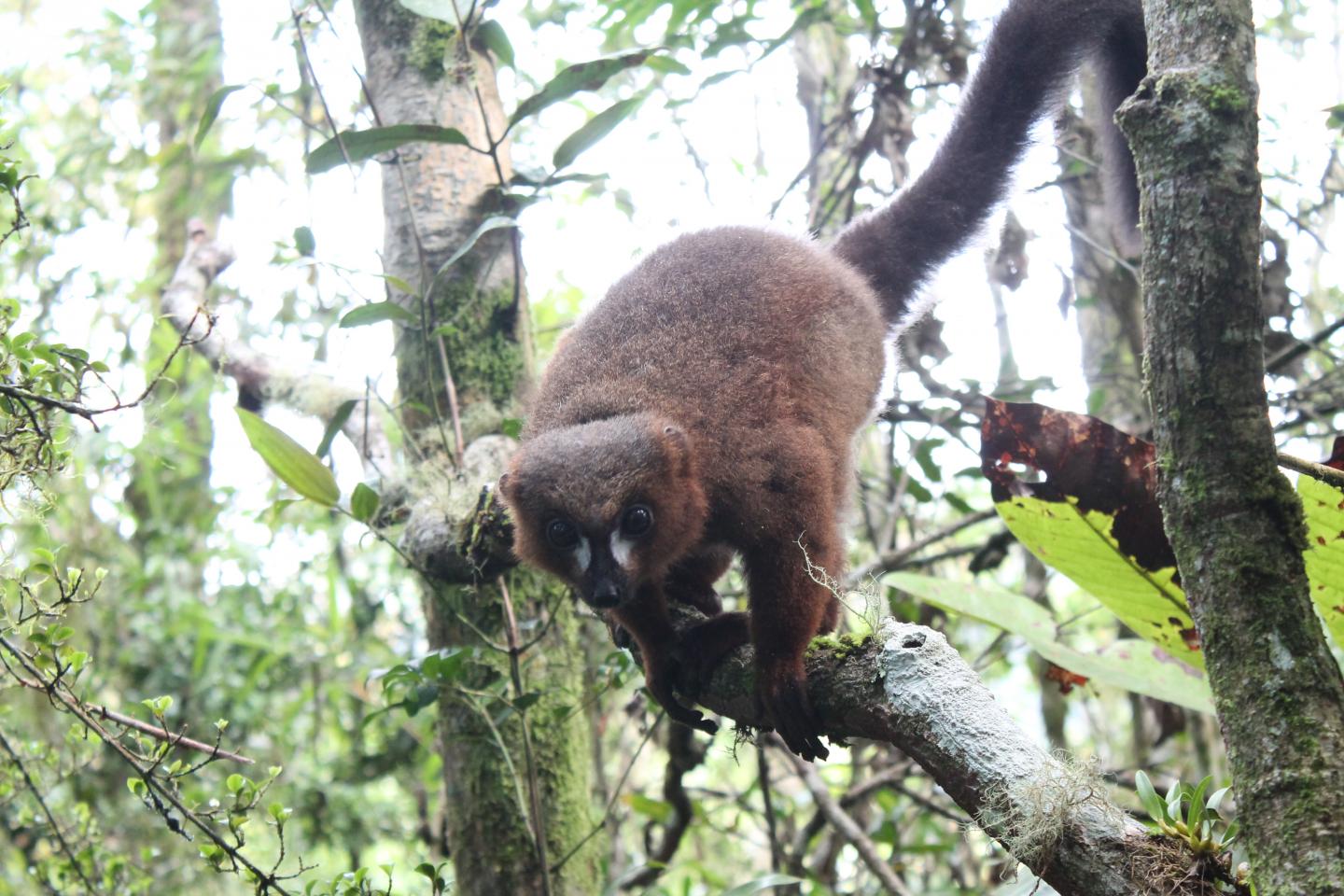Cuddling up may keep red-bellied lemurs healthy
Hugging spreads microbes, and microbes are (usually) good for you.

Most microbes are good at spreading themselves around. That’s how viruses like the flu can infect a classroom full of kids, or even an entire office staff. But not all microbes are dangerous pathogens. In fact, some are pretty beneficial, if not crucial to our health and survival. That’s especially true for many of the microbes living in our digestive system, what scientists call the gut microbiome.
If you’re a red-bellied lemur, the key to maintaining a healthy set of bacteria in your gut is clear: you’ve got to get cuddly.
According to a new study in the Journal of Animal Ecology, these super social primates share a fair amount of microbes while they interact. In fact, scientists found that the more time and contact they had with each other, the more microbes they shared. Biologists think this degree of sharing helps protect the entire group from opportunistic infections, like the lemur equivalent of a cold or flu.
“The gut microbiome of red-bellied lemurs most closely resembles that of their group members. They are extremely cohesive and in contact a great deal, and rarely if ever interact with other groups, so this makes sense,” says co-lead author Andrea Baden, an anthropologist at Hunter College in New York.
But what’s more interesting is how this bacterial bond benefits them. Bacteria generally develop a sort of harmony with each other, such that when a strain that doesn’t mesh with the group comes along, it can really mess things up and lead to infections. These primates tend to live in incredibly close-knit communities, and typically only interact with members of their own clique. Sharing bacteria back and forth keeps the whole group on roughly the same page, bacterially speaking, which makes it much less likely for an individual to encounter any dangerously unfamiliar microbes.
Groups that are related but not immediately close (like your grandparents or your first cousins) share a lot of the same core microbes as well. This is because lemurs get a lot of their initial microbes from their moms at birth. They keep those with them when they branch out and form their own groups, so the wider lemur social network maintains a nice microbial overlap.
Why is this important? Animals that are particularly social are often considered more susceptible to disease, since their tendency to snuggle up with friends makes them more likely to catch infections. But lemurs may mitigate this to an extent by sharing gut microbes so easily. It’s possible that this exchange helps them share immunity to certain pathogens across social groups. The researchers now want to figure out if these shared microbes are all beneficial, or if some cause disease. That will help them better understand if this is truly a mechanism that helps protect the lemurs.
Just like lemurs, human gut microbes are crucial to our health. So much so that recent research suggests that when our microbiome gets out of whack—whether it’s from antibiotic use, low fiber intake, or being born via cesarean section—the imbalance can help trigger disease. Understanding how other animals maintain their guts could help us improve our own health.
